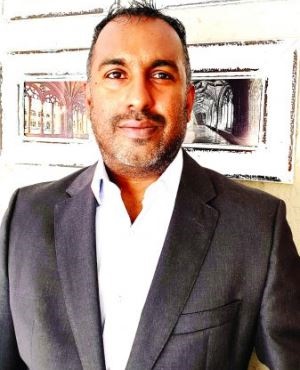
What is money? Is it a means of transacting, a store of value, or a measure of value? Is it coins and notes, bank cards, investments or gold?
Money is all of this, connected into a complex financial system consisting of government treasuries, central banks and other financial institutions.
Money is the most essential commodity that we use to interact with our world and manage our lives; yet many of us do not know enough about it and for most of the time we do not pay enough attention to it.
As money continues to become more digital, the physical relationship that we once used to manage our finances is rapidly changing.
In the past, an emptying wallet was more likely to scare and deter you from overspending than seeing one less digit on your bank balance on a screen.
What is frightening is the new ease of transacting and the seamless ways of doing so: tap and go, QR codes, mobile payments, biometrics; these are all mechanisms that are making it easier to separate you from your money.
This, coupled with the onslaught of individualised advertising, direct promotions and simpler means of accessing credit, makes it easier than ever getting you into financial trouble.
Research has shown that personal money management is linked to your attitude towards money.
We develop this in many ways – it starts with our general attitude to life, our knowledge of money and general finances, the behaviours learnt from our parents and peers, and most importantly, in my opinion, the effort it takes for you to earn it.
Like your physical health, your financial wellbeing requires you to be mindful and disciplined about the decisions that you make with money.Mindfulness must start at an early age; parenting and our schooling system has a responsibility to prepare learners to independently take charge of their own financial future in an increasingly complex global world.
It is imperative that our national curriculum integrates a foundational programme that builds a deep understanding, practical capability and respect for money and the critical role it plays in society.
When I think about my money, it starts with what is in my wallet and ends when it is no longer there, an endless cycle that ebbs and flows with the month.
This may sound overly simplified, but our day-to-day lives are largely dictated by this simple cashflow.
All of us face the same problem: We have an unlimited set of needs and desires that we need to satisfy with a limited amount of money (some more limited than others).
If we truly look at the decisions we make with money, we can break it down quite simply: spend it, save it, or give it to someone else.
The two most common themes that you will be exposed to regarding money is about how to save it and how to manage and make decisions about debt.
The most powerful decision, however, that you will make daily is how you spend your money, either by consuming goods and services or acquiring assets – resources which can generate a future benefit (such as a house).
Consumption is a necessary part of life; we need to eat, clothe ourselves, move from one place to another and communicate.
Savings is just a form of deferred consumption or eventually giving money to someone else.
We are all good at spending money, although we spend little time considering the impact that our spending has in shaping the world around us.
A piece of the money puzzle that we often overlook is that, with money, the decisions we make are not isolated but integrate into a powerful system of social economics.
These economics can drive prosperity or create financial inequality; economics that generate wealth or those that cause markets to collapse.
It will amaze you how your wallet, no matter its size, has the power to do all of this.
We influence our world by the things we do with our money. When we buy goods, we are supporting companies and employment, which grow and shrink by these decisions.
Our choice to spend our money with entrepreneurs rather than big businesses can build a nation. When we buy foreign goods, money leaves our national system and therefore as a country we become poorer.
When we buy counterfeit goods, we are inadvertently supporting crime and possibly even terrorism. The ability to shape a nation and change the world is not just made so much by lofty ideals or votes at an election, but by the way we choose to spend our money.
This is the power of your wallet. Understand money better, be mindful of your decisions in financial matters and unlock your wallet to change our world for the better.
Deslin Naidoo, CFA, is the founder of NEBULA SI, a savings and investment start-up integrating traditional finance with artificial intelligence.
This article originally appeared in the Collective Insight supplement in the 20 February edition of finweek. Buy and download the magazine here or subscribe to our newsletter here.




 Publications
Publications
 Partners
Partners











